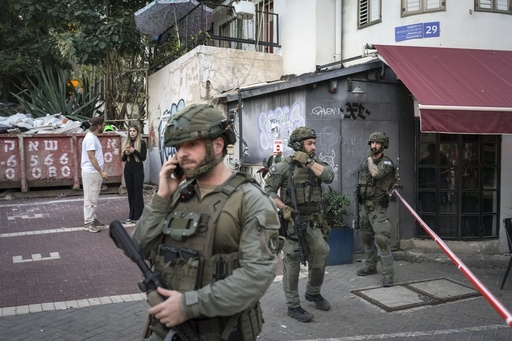The ceasefire between Israel and Hamas is scheduled to commence at 8:30 a.m. local time (0630 GMT) on Sunday, according to Qatar, which acted as a mediator. This agreement aims to halt hostilities following 15 months of warfare and will facilitate the release of numerous hostages held by Hamas in the Gaza Strip, along with hundreds of Palestinians detained by Israel. The Israeli Cabinet approved the ceasefire deal early Saturday morning, marking the first release of hostages under this agreement.
Following extensive negotiations mediated by the United States, Qatar, and Egypt, this is the second truce established in the ongoing conflict. The hostilities escalated significantly after Hamas launched a coordinated attack on southern Israel on October 7, 2023, resulting in the deaths of about 1,200 individuals and the abduction of approximately 250 others. As reported by local health authorities, Israel’s military response has reportedly claimed the lives of over 46,000 Palestinians, including a high proportion of women and children.
In related developments, the U.N.’s humanitarian affairs division is intensifying efforts to coordinate aid delivery to Gaza following the expected cessation of hostilities. Muhannad Hadi, the U.N.’s humanitarian coordinator, mentioned that preparations are being made to ensure that essential supplies such as water, food, and medical assistance reach those in need as part of the initial phase of the ceasefire.
Demonstrations occurred in Jerusalem where dozens of Israelis protested against the ceasefire agreement, vocalizing demands for Prime Minister Benjamin Netanyahu’s resignation and an extension of military action against Hamas. Some protesters symbolically carried draped coffins and expressed discontent, labeling the ceasefire as a betrayal of fallen Israeli soldiers.
Meanwhile, in Damascus, the mother of the missing American journalist Austin Tice has returned to Syria to further her search for her son, who disappeared over a decade ago during the ongoing conflict. Debra Tice aims to draw attention to her son’s case and support other families enduring similar tragedies.
Prime Minister Netanyahu commented that the ceasefire should be seen as a temporary measure, asserting that Israel retains the right to resume military operations if deemed necessary. He claimed to have the backing of President-elect Donald Trump and cited military successes as influential in Hamas’s decision to agree to a ceasefire.
In London, thousands took to the streets in a pro-Palestinian demonstration advocating for the comprehensive implementation of the ceasefire agreement. Protest organizers highlighted ongoing concerns over the treatment of Palestinians and the need for a full withdrawal of Israeli forces from Gaza.
Hope remains palpable regarding the release of Palestinian prisoners, with families in the West Bank preparing for the return of their relatives. Some families are celebrating the return of long-imprisoned loved ones, viewing it as a significant moment of relief amidst ongoing tensions.
Israeli officials anticipate that the ceasefire could eventually facilitate humanitarian aid into Gaza. However, conditions remain complex, with various factions involved and logistical challenges such as existing infrastructure issues highlighted by U.N. Secretary-General António Guterres.
On the Israeli side, security concerns are pervasive, as an attack in Tel Aviv resulted in one individual being seriously wounded, further complicating the fragile atmosphere.
As the ceasefire approaches, significant political shifts might occur as key figures, like Itamar Ben-Gvir, express their discontent with the current government stance, hinting at possible resignations that could affect the stability of the Israeli government.
As preparations for the ceasefire continue, both camps await the anticipated release of hostages, with significant implications for both the Israeli and Palestinian communities going forward. The situation remains delicate, and many are hopeful that this truce will lead to more durable peace efforts.



